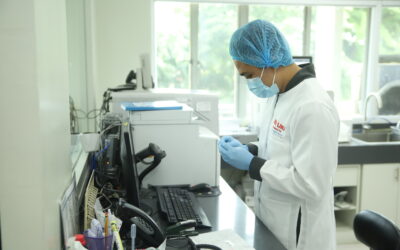The liver is responsible for producing C-reactive protein (CRP). When an external offending agent like viruses, bacteria, or toxic chemicals is encountered, the body and its immune system activate and respond through inflammatory cells and cytokines. This results in pain, swelling, bruising, or redness and affects body systems like the joints.
Those who need to take the CRP test are the following:
- If your doctor suspects that you may have a chronic and inflammatory condition
- You are already diagnosed with an infection or a chronic and inflammatory condition
In addition, those who are at risk for chronic inflammatory conditions are:
- Those who have sedentary lifestyles
- Alcoholics
- People who undergo chronic stress
- Those who have a BMI at or above 30, especially those with excess belly fat
- People who regularly experience exposure to toxins (air pollution, hazardous waste and industrial chemicals)
You may also need to take the test if you are experiencing these symptoms:
- Chills
- Fever
- Nausea
- Vomiting
- Shallow and rapid breathing
- Rapid heart rate
Reasons For Taking A C-Reactive Protein Test
- Diagnosis: The test is used to determine whether you may have conditions such as inflammatory bowel disease, pelvic inflammatory disease, and lung disease.
- Narrow down your current condition: If you are experiencing the symptoms of a bacterial infection (fever, chills, nausea and vomiting), you need to take the test. This way, the doctors can figure out your current condition. Additional tests will be ordered by your doctor if the CRP results show that you have inflammation.
- Treatment monitoring: If you have already been diagnosed with an infection or chronic inflammatory condition, the test reviews your treatment and its effectiveness.
C Protein Test Procedure
Reminders Before The Test
- Avoid hard exercises, such as intense weight training or a long run. These activities can cause your C-reactive protein level to jump.
- Inform your healthcare provider about the medications that you are currently taking. There are some medicines that can affect CRP levels, such as Cyclooxygenase inhibitors (aspirin, rofecoxib, celecoxib), and platelet aggregation inhibitors (clopidogrel, abciximab).
- If your blood sample will be used for others such as a complete blood count (CBC) test, then you may have to fast and avoid food or drink for a certain amount of time before the test procedure.
The Procedure
- The healthcare provider inserts a needle into the vein of your arm and collects your blood.
- The blood sample undergoes analysis.
- You will get your results.
FAQs
What diseases can CRP detect?
CRP can help detect and diagnose many diseases, including:
- Infections
- Inflammatory Bowel Disease and intestinal-related disorders such as Crohn’s Disease and ulcerative colitis
- Autoimmune conditions like vasculitis, lupus and rheumatoid arthritis
What happens if CRP is positive and its levels are high?
If the CRP test result is positive and your CRP levels are high, it indicates the presence of inflammation.
Schedule Your CRP Blood Test and Other Laboratory Procedures with Medi Linx Laboratory
To achieve our best health, we must proactively monitor our current condition and be vigilant when we encounter concerning symptoms, especially ones that possibly indicate inflammation.
Book your own CRP test, or even your executive check-up or pre-employment medical exam, at Medi Linx Laboratory through our Virtual Lab or contact us at 0939-9227341 to schedule a test!





